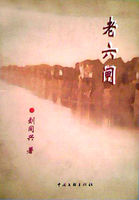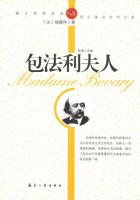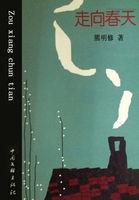IT was not difficult for me, on Peggotty's solicitation, to resolve to stay where I was, until after the remains of the poor carrier should have made their last journey to Blunderstone. She had long ago bought, out of her own savings, a little piece of ground in our old churchyard near the grave of‘her sweet girl’, as she always called my mother; and there they were to rest.
In keeping Peggotty company, and doing all I could for her (little enough at the utmost), I was as grateful, I rejoice to think, as even now I could wish myself to have been. But I am afraid I had a supreme satisfaction, of a personal and professional nature, in taking charge of Mr. Barkis's will, and expounding its contents.
I may claim the merit of having originated the suggestion that the will should be looked for in the box. After some search, it was found in the box, at the bottom of a horse's nose-bag; wherein (besides hay) there was discovered an old gold watch, with chain and seals, which Mr. Barkis had worn on his wedding-day, and which had never been seen before or since; a silver tobacco-stopper, in the form of a leg; an imitation lemon, full of minute cups and saucers, which I have some idea Mr. Barkis must have purchased to present to me when I was a child, and afterwards found himself unable to part with; eighty-seven guineas and a half, in guineas and half-guineas; two hundred and ten pounds, in perfectly clean Bank notes; certain receipts for Bank of England stock; an old horseshoe, a bad shilling, a piece of camphor, and an oyster-shell. From the circumstance of the latter article having been much polished, and displaying prismatic colours on the inside, I conclude that Mr. Barkis had some general ideas about pearls, which never resolved themselves into anything definite.
For years and years, Mr. Barkis had carried this box, on all his journeys, every day. That it might the better escape notice, he had invented a fiction that it belonged to‘Mr. Blackboy’, and was‘to be left with Barkis till called for’; a fable he had elaborately written on the lid, in characters now scarcely legible.
He had hoarded, all these years, I found, to good purpose. His property in money amounted to nearly three thousand pounds. Of this he bequeathed the interest of one thousand to Mr. Peggotty for his life; on his decease, the principal to be equally divided between Peggotty, little Emily, and me, or the survivor or survivors of us, share and share alike. All the rest he died possessed of, he bequeathed to Peggotty; whom he left residuary legatee, and sole executrix of that his last will and testament.
I felt myself quite a proctor when I read this document aloud with all possible ceremony, and set forth its provisions, any number of times, to those whom they concerned. I began to think there was more in the Commons than I had supposed. I examined the will with the deepest attention, pronounced it perfectly formal in all respects, made a pencil-mark or so in the margin, and thought it rather extraordinary that I knew so much.
In this abstruse pursuit; in making an account for Peggotty, of all the property into which she had come; in arranging all the affairs in an orderly manner; and in being her referee and adviser on every point, to our joint delight; I passed the week before the funeral. I did not see little Emily in that interval, but they told me she was to be quietly married in a fortnight.
I did not attend the funeral in character, if I may venture to say so. I mean I was not dressed up in a black coat and a streamer, to frighten the birds; but I walked over to Blunderstone early in the morning, and was in the churchyard when it came, attended only by Peggotty and her brother. The mad gentleman looked on, out of my little window; Mr. Chillip's baby wagged its heavy head, and rolled its goggle eyes, at the clergyman, over its nurse's shoulder; Mr. Omer breathed short in the background; no one else was there; and it was very quiet. We walked about the churchyard for an hour, after all was over; and pulled some young leaves from the tree above my mother's grave.
A dread falls on me here. A cloud is lowering on the distant town, towards which I retraced my solitary steps. I fear to approach it. I cannot bear to think of what did come, upon that memorable night; of what must come again, if I go on.
It is no worse, because I write of it. It would be no better, if I stopped my most unwilling hand. It is done. Nothing can undo it; nothing can make it otherwise than as it was.
My old nurse was to go to London with me next day, on the business of the will. Little Emily was passing that day at Mr. Omer's. We were all to meet in the old boathouse that night. Ham would bring Emily at the usual hour. I would walk back at my leisure. The brother and sister would return as they had come, and be expecting us, when the day closed in, at the fireside.
I parted from them at the wicket-gate, where visionary Strap had rested with Roderick Random's knapsack in the days of yore; and, instead of going straight back, walked a little distance on the road to Lowestoft. Then I turned, and walked back towards Yarmouth. I stayed to dine at a decent alehouse, some mile or two from the Ferry I have mentioned before; and thus the day wore away, and it was evening when I reached it. Rain was falling heavily by that time, and it was a wild night; but there was a moon behind the clouds, and it was not dark.
I was soon within sight of Mr. Peggotty's house, and of the light within it shining through the window. A little floundering across the sand, which was heavy, brought me to the door, and I went in.
It looked very comfortable indeed. Mr. Peggotty had smoked his evening pipe and there were preparations for some supper by and by. The fire was bright, the ashes were thrown up, the locker was ready for little Emily in her old place. In her own old place sat Peggotty, once more, looking (but for her dress) as if she had never left it. She had fallen back, already, on the society of the work-box with St. Paul's upon the lid, the yard-measure in the cottage, and the bit of wax-candle; and there they all were, just as if they had never been disturbed. Mrs. Gummidge appeared to be fretting a little, in her old corner; and consequently looked quite natural, too.
‘You're first of the lot, Mas'r Davy!’said Mr. Peggotty with a happy face.‘Doen't keep in that coat, sir, if it's wet.’
‘Thank you, Mr. Peggotty,’said I, giving him my outer coat to hang up.‘It's quite dry.’
‘So 'tis!’said Mr. Peggotty, feeling my shoulders.‘As a chip! Sit ye down, sir. It ain't o' no use saying welcome to you, but you're welcome, kind and hearty.’
‘Thank you, Mr. Peggotty, I am sure of that. Well, Peggotty!’said I, giving her a kiss.‘And how are you, old woman?’
‘Ha, ha!’laughed Mr. Peggotty, sitting down beside us, and rubbing his hands in his sense of relief from recent trouble, and in the genuine heartiness of his nature;‘there's not a woman in the wureld, sir—as I tell her—that need to feel more easy in her mind than her! She done her dooty by the departed, and the departed know'd it; and the departed done what was right by her, as she done what was right by the departed;—and—and—and it's all right!’
Mrs. Gummidge groaned.
‘Cheer up, my pritty mawther!’said Mr. Peggotty. (But he shook his head aside at us, evidently sensible of the tendency of the late occurrences to recall the memory of the old one.)‘Doen't be down! Cheer up, for your own self, on'y a little bit, and see if a good deal more doen't come nat'ral!’
‘Not to me, Dan'l,’returned Mrs. Gummidge.‘Nothink's nat'ral to me but to be lone and lorn.’
‘No, no,’said Mr. Peggotty, soothing her sorrows.
‘Yes, yes, Dan'l!’said Mrs. Gummidge.‘I ain't a person to live with them as has had money left. Thinks go too contrary with me. I had better be a riddance.’
‘Why, how should I ever spend it without you?’said Mr. Peggotty, with an air of serious remonstrance.‘What are you a talking on? Doen't I want you more now, than ever I did?’
‘I know'd I was never wanted before!’cried Mrs. Gummidge, with a pitiable whimper,‘and now I'm told so! How could I expect to be wanted, being so lone and lorn, and so contrary!’
Mr. Peggotty seemed very much shocked at himself for having made a speech capable of this unfeeling construction, but was prevented from replying, by Peggotty's pulling his sleeve, and shaking her head. After looking at Mrs. Gummidge for some moments, in sore distress of mind, he glanced at the Dutch clock, rose, snuffed the candle, and put it in the window.
‘Theer!’said Mr. Peggotty, cheerily.‘Theer we are, Missis Gummidge!’Mrs. Gummidge slightly groaned.‘Lighted up, accordin’to custom! You're a wonderin’what that's fur, sir! Well, it's fur our little Em'ly. You see, the path ain't over light or cheerful arter dark; and when I'm here at the hour as she's a comin’home, I puts the light in the winder. That, you see,’said Mr. Peggotty, bending over me with great glee,‘meets two objects. She says, says Em'ly,“Theer's home!”she says. And likewise, says Em'ly,“My uncle's theer!”Fur if I ain't theer, I never have no light showed.’
‘You're a baby!’said Peggotty; very fond of him for it, if she thought so.
‘Well,’returned Mr. Peggotty, standing with his legs pretty wide apart, and rubbing his hands up and down them in his comfortable satisfaction, as he looked alternately at us and at the fire.‘I doen't know but I am. Not, you see, to look at.’
‘Not azackly,’observed Peggotty.
‘No,’laughed Mr. Peggotty,‘not to look at, but to—to consider on, you know. I doen't care, bless you! Now I tell you. When I go a looking and looking about that theer pritty house of our Em'ly's, I'm—I'm Gormed,’said Mr. Peggotty, with sudden emphasis—‘theer! I can't say more—if I doen't feel as if the littlest things was her, a'most. I takes 'em up and I put 'em down, and I touches of 'em as delicate as if they was our Em'ly. So 'tis with her little bonnets and that. I couldn't see one on 'em rough used a purpose—not fur the whole wureld. There's a babby fur you, in the form of a great Sea Porkypine!’said Mr. Peggotty, relieving his earnestness with a roar of laughter.
Peggotty and I both laughed, but not so loud.
‘It's my opinion, you see,’said Mr. Peggotty, with a delighted face, after some further rubbing of his legs,‘as this is along of my havin’played with her so much, and made believe as we was Turks, and French, and sharks, and every wariety of forinners—bless you, yes; and lions and whales, and I doen't know what all!—when she warn't no higher than my knee. I've got into the way on it, you know. Why, this here candle, now!’said Mr. Peggotty, gleefully holding out his hand towards it,‘I know wery well that arter she's married and gone, I shall put that candle theer, just the same as now. I know wery well that when I'm here o' nights (and where else should I live, bless your arts, whatever fortun’I come into!) and she ain't here or I ain't theer, I shall put the candle in the winder, and sit afore the fire, pretending I'm expecting of her, like I'm a doing now. THERE’S a babby for you,’said Mr. Peggotty, with another roar,‘in the form of a Sea Porkypine! Why, at the present minute, when I see the candle sparkle up, I says to myself,“She's a looking at it! Em'ly's a coming!”THERE’S a babby for you, in the form of a Sea Porkypine! Right for all that,’said Mr. Peggotty, stopping in his roar, and smiting his hands together;‘fur here she is!’
It was only Ham. The night should have turned more wet since I came in, for he had a large sou'wester hat on, slouched over his face.
‘Wheer's Em'ly?’said Mr. Peggotty.
Ham made a motion with his head, as if she were outside. Mr. Peggotty took the light from the window, trimmed it, put it on the table, and was busily stirring the fire, when Ham, who had not moved, said:
‘Mas'r Davy, will you come out a minute, and see what Em'ly and me has got to show you?’
We went out. As I passed him at the door, I saw, to my astonishment and fright, that he was deadly pale. He pushed me hastily into the open air, and closed the door upon us. Only upon us two.
‘Ham! what's the matter?’
‘Mas'r Davy!—’Oh, for his broken heart, how dreadfully he wept!
I was paralysed by the sight of such grief. I don't know what I thought, or what I dreaded. I could only look at him.
‘Ham! Poor good fellow! For Heaven's sake, tell me what's the matter!’
‘My love, Mas'r Davy—the pride and hope of my art—her that I'd have died for, and would die for now—she's gone!’
‘Gone!’
‘Em'ly's run away! Oh, Mas'r Davy, think HOW she's run away, when I pray my good and gracious God to kill her (her that is so dear above all things) sooner than let her come to ruin and disgrace!’
The face he turned up to the troubled sky, the quivering of his clasped hands, the agony of his figure, remain associated with the lonely waste, in my remembrance, to this hour. It is always night there, and he is the only object in the scene.
‘You're a scholar,’he said, hurriedly,‘and know what's right and best. What am I to say, indoors? How am I ever to break it to him, Mas'r Davy?’
I saw the door move, and instinctively tried to hold the latch on the outside, to gain a moment's time. It was too late. Mr. Peggotty thrust forth his face; and never could I forget the change that came upon it when he saw us, if I were to live five hundred years.
I remember a great wail and cry, and the women hanging about him, and we all standing in the room; I with a paper in my hand, which Ham had given me; Mr. Peggotty, with his vest torn open, his hair wild, his face and lips quite white, and blood trickling down his bosom (it had sprung from his mouth, I think), looking fixedly at me.
‘Read it, sir,’he said, in a low shivering voice.‘Slow, please. I doen't know as I can understand.’
In the midst of the silence of death, I read thus, from a blotted letter:
“‘When you, who love me so much better than I ever have deserved, even when my mind was innocent, see this, I shall be far away.’”
‘I shall be fur away,’he repeated slowly.‘Stop! Em'ly fur away. Well!’
“‘When I leave my dear home—my dear home—oh, my dear home!—in the morning,’”the letter bore date on the previous night:
“‘—it will be never to come back, unless he brings me back a lady. This will be found at night, many hours after, instead of me. Oh, if you knew how my heart is torn. If even you, that I have wronged so much, that never can forgive me, could only know what I suffer! I am too wicked to write about myself! Oh, take comfort in thinking that I am so bad. Oh, for mercy's sake, tell uncle that I never loved him half so dear as now. Oh, don't remember how affectionate and kind you have all been to me—don't remember we were ever to be married—but try to think as if I died when I was little, and was buried somewhere. Pray Heaven that I am going away from, have compassion on my uncle! Tell him that I never loved him half so dear. Be his comfort. Love some good girl that will be what I was once to uncle, and be true to you, and worthy of you, and know no shame but me. God bless all! I'll pray for all, often, on my knees. If he don't bring me back a lady, and I don't pray for my own self, I'll pray for all. My parting love to uncle. My last tears, and my last thanks, for uncle!’”
That was all.
He stood, long after I had ceased to read, still looking at me. At length I ventured to take his hand, and to entreat him, as well as I could, to endeavour to get some command of himself. He replied,‘I thankee, sir, I thankee!’without moving.
Ham spoke to him. Mr. Peggotty was so far sensible of HIS affliction, that he wrung his hand; but, otherwise, he remained in the same state, and no one dared to disturb him.
Slowly, at last, he moved his eyes from my face, as if he were waking from a vision, and cast them round the room. Then he said, in a low voice:
‘Who's the man? I want to know his name.’
Ham glanced at me, and suddenly I felt a shock that struck me back.
‘There's a man suspected,’said Mr. Peggotty.‘Who is it?’
‘Mas'r Davy!’implored Ham.‘Go out a bit, and let me tell him what I must. You doen't ought to hear it, sir.’
I felt the shock again. I sank down in a chair, and tried to utter some reply; but my tongue was fettered, and my sight was weak.
‘I want to know his name!’I heard said once more.
‘For some time past,’Ham faltered,‘there's been a servant about here, at odd times. There's been a gen'lm'n too. Both of 'em belonged to one another.’
Mr. Peggotty stood fixed as before, but now looking at him.
‘The servant,’pursued Ham,‘was seen along with—our poor girl—last night. He's been in hiding about here, this week or over. He was thought to have gone, but he was hiding. Doen't stay, Mas'r Davy, doen't!’
I felt Peggotty's arm round my neck, but I could not have moved if the house had been about to fall upon me.
‘A strange chay and hosses was outside town, this morning, on the Norwich road, a'most afore the day broke,’Ham went on.‘The servant went to it, and come from it, and went to it again. When he went to it again, Em'ly was nigh him. The t'other was inside. He's the man.’
‘For the Lord's love,’said Mr. Peggotty, falling back, and putting out his hand, as if to keep off what he dreaded.‘Doen't tell me his name's Steerforth!’
‘Mas'r Davy,’exclaimed Ham, in a broken voice,‘it ain't no fault of yourn—and I am far from laying of it to you—but his name is Steerforth, and he's a damned villain!’
Mr. Peggotty uttered no cry, and shed no tear, and moved no more, until he seemed to wake again, all at once, and pulled down his rough coat from its peg in a corner.
‘Bear a hand with this! I'm struck of a heap, and can't do it,’he said, impatiently.‘Bear a hand and help me. Well!’when somebody had done so.‘Now give me that theer hat!’
Ham asked him whither he was going.
‘I'm a going to seek my niece. I'm a going to seek my Em'ly. I'm a going, first, to stave in that theer boat, and sink it where I would have drownded him, as I'm a living soul, if I had had one thought of what was in him! As he sat afore me,’he said, wildly, holding out his clenched right hand,‘as he sat afore me, face to face, strike me down dead, but I'd have drownded him, and thought it right!—I'm a going to seek my niece.’
‘Where?’cried Ham, interposing himself before the door.
‘Anywhere! I'm a going to seek my niece through the wureld. I'm a going to find my poor niece in her shame, and bring her back. No one stop me! I tell you I'm a going to seek my niece!’
‘No, no!’cried Mrs. Gummidge, coming between them, in a fit of crying.‘No, no, Dan'l, not as you are now. Seek her in a little while, my lone lorn Dan'l, and that'll be but right! but not as you are now. Sit ye down, and give me your forgiveness for having ever been a worrit to you, Dan'l—what have my contraries ever been to this!—and let us speak a word about them times when she was first an orphan, and when Ham was too, and when I was a poor widder woman, and you took me in. It'll soften your poor heart, Dan'l,’laying her head upon his shoulder,‘and you'll bear your sorrow better; for you know the promise, Dan'l,“As you have done it unto one of the least of these, you have done it unto me”,—and that can never fail under this roof, that's been our shelter for so many, many year!’
He was quite passive now; and when I heard him crying, the impulse that had been upon me to go down upon my knees, and ask their pardon for the desolation I had caused, and curse Steer—forth, yielded to a better feeling, My overcharged heart found the same relief, and I cried too.















